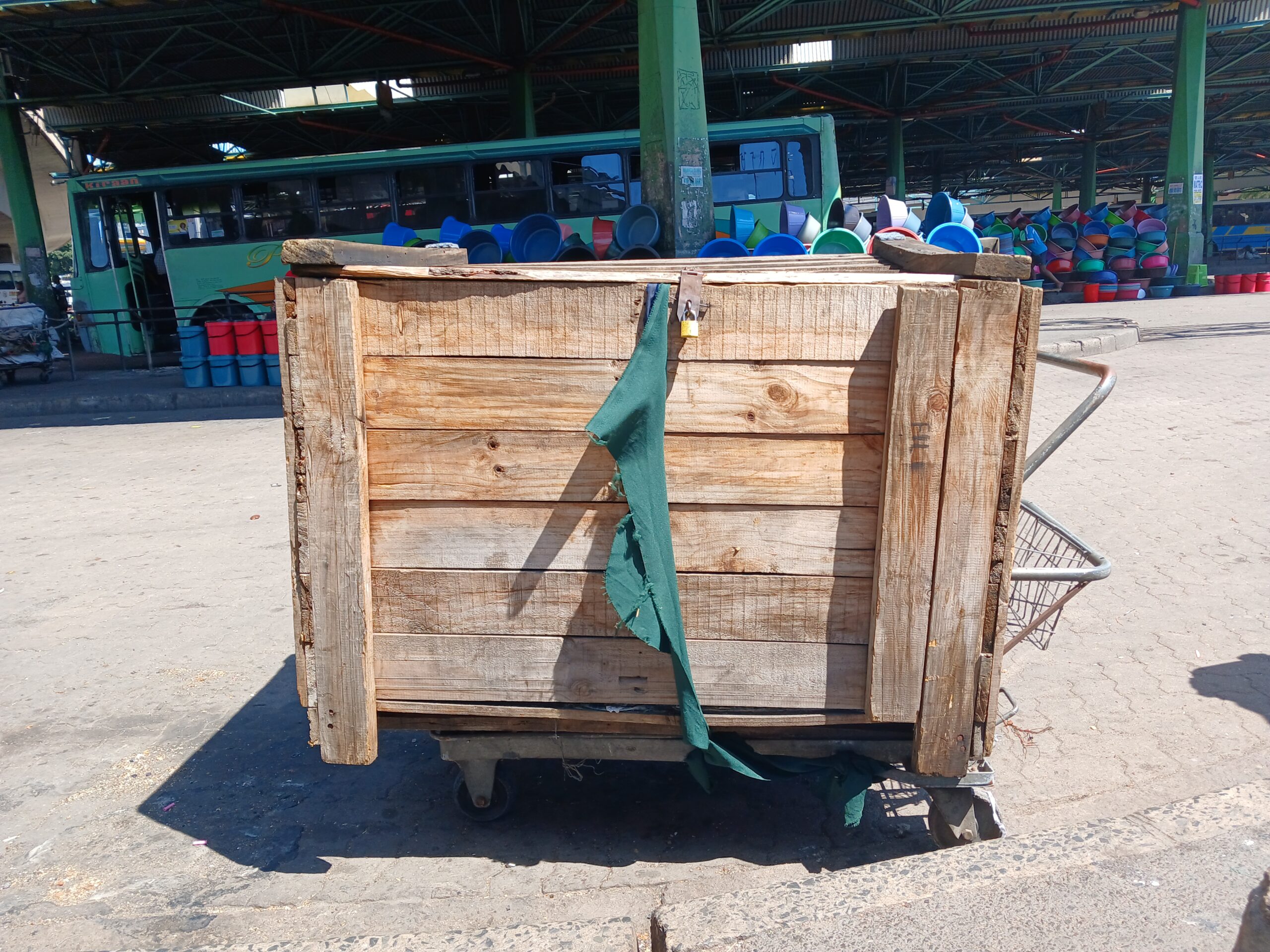By Priyanka Govender
Here in South Africa, where jobs are hard to come by and the unemployment crisis is skyrocketing, having an entrepreneurial spirit is key. Carving out a space for yourself in our unforgiving economy is not only a way of life for many, but essential for survival. In fact, South Africa, home to one of the world’s largest populations of informal workers, has an economy that depends on our entrepreneurs, such as the produce sellers on the roadside to the barrow operators and informal waste collectors. But although they are much needed, they tend to live the harshest lives. To be a successful entrepreneur, one needs to possess a business mind, a creative spark, determination, and a bit of luck. A prime example of this rocky journey to success is the story of a street carpenter in Durban’s very own Warwick Market.
Carpentry is a highly needed skill in Warwick. Crates are needed in the informal economy for storage purposes. It’s a secure method of locking away equipment, goods and valuables when not trading. It also provides a more convenient container in which to transport your possessions to and from of storage facilities. Tables are needed by all vendors and stalls in the market to display goods. Mubulelani runs a carpentry business in the Durban Inner City. After years of being in the business he’s got it down to a fine art. He supplies to both traders and the formal sector, hiring transport for deliveries when necessary. He has three assistants who work on commission and in addition sells pallets for extra income. He knows his market well and how many pallets are required to manufacture a box. He knows there’s not much profit on boxes, but pallet tables are in high demand with many traders. In fact, there are a lot of customers, such as people coming to trade for the first time, or who’ve been raided by the police or who have had their tables damaged or stolen, who he can supply. There is no risk of equipment or materials stolen because barrow operators work until late at night so there’s always someone around to safeguard equipment.
As per custom, the life of an entrepreneur comes with certain challenges. Loadshedding poses a problem when there are urgent orders needing to be filled and no electricity to run his carpentry tools. This reduces profitability because he has to use a manual hand saw which physically demanding. Extreme weather means the risk of his materials getting damaged. Wet wood is not ideal for his products as it becomes loose and unstable when it dries. In terms of sourcing material, he has only one reliable supplier although he tries to get pallets donated. The police invade his working space, and his goal is to get a legally allocated space to escape harassment, but he needs to submit a proposal to the officials.
Before he established his business, Mubulelani found himself in the carpentry industry through keen observational skills and a stroke of luck. Next to where he used to work was an elderly man running a carpentry business part-time. While the elderly man was away at his permanent work, he saw that many of the man’s customers would place orders and he took the opportunity to fulfil them, learning and observing each time. He maintains that to this day there is no bad blood between the old man and himself. He works in a completely separate location now. There used to be some competition operating in another market location, but his competitor made the mistake of taking orders and deposits and then not delivering. He disappeared one day and Mubulelani believes like any good business owner that he has learnt a very valuable lesson from the mistakes of others. Honesty is the best policy. He now doesn’t accept deposits in case he can’t deliver, and he no longer has any competition.





